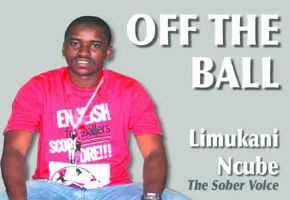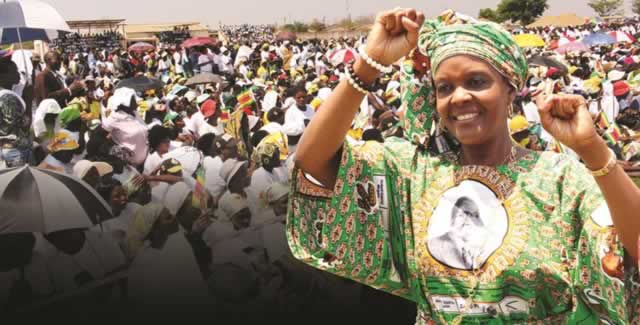Where is the SuperSport deal Mr president?

While corporate sponsorship remains the major driver behind sporting disciplines, especially football, earnings from television rights have in recent years transformed the world of sport, particularly cricket, rugby and football. Other sporting disciplines that also attract live television coverage have also seen an increase in the number of companies that want to partner with teams so as to benefit from the television audience. This has led to a direct positive impact on the livelihood of sporting personalities due to increased earnings.
The English league transformed overnight after a massive television rights deal was sealed and closer to home, Premiership teams in South Africa earn a lot of money from television rights and when the time comes to renew the television rights deal, there is always a tug of war between broadcasters.
PSL board of governors president Twine Phiri spoke on a number of occasions last year about the SuperSport deal, something which former league boss Tapiwa Matangaidze also spoke about on a number of times. Last year, when a couple of matches involving Dynamos and Motor Action were screened live on SuperSport, football lovers felt a deal was imminent, but nothing seems to have materialised. In fact, things got worse with the local national broadcaster, ZBC failing to reach an agreement with the league and the sponsors over the airing of league matches on radio and television leading to a complete blackout.
It’s a sad scenario in that people cannot see their local heroes in action on television, or even get updates of matches on radio or commentaries, yet ZTV airs an interesting sports update during Morning Live, with up to date action from across the globe. The situation is worse for sports lovers from remote areas with no access to newspapers. The stalemate between the PSL and national broadcaster is said to be centered on who should finance the coverage. However, the world over, the trend is that the broadcaster pays the league, after getting money from advertising and so forth, but the situation is tricky at home because the broadcaster has no capacity to carry such a task, and even provide adequate equipment for all teams to be catered for on a single weekend.
That is why the SuperSport deal appeared worth taking into account and pursuing, unless the South African company found our league not profitable, which I doubt very much owing to the interest in Zimbabwean football and its players, and the millions of Zimbabweans dotted across the globe who are keen to follow their favourite home teams.
Most people follow European football because it is beamed live on television channels and the interest in South African football has also increased in recent years, not because of the large number of Zimbabwean players in South Africa, but because people get an overdose of the Mzansi diski via wiztek sate light, which they access for free in the majority of homes across the country.
Just before the start of the 2012/13 season, the South Africa league announced that SuperSport International won the five year broadcast rights of the soccer competition starting from the 2012/13 season. This was a renewal of the PSL’s deal with SuperSport which was signed in 2007.
The new deal, the PSL said, would be worth well over R2 billion over five years, to improve on the previous deal of R1.6 billion. SuperSport will also receive internet and mobile rights as part of the package to take advantage of the increasing new media, said PSL chairperson Irvin Khoza.
“We have finalised the adjudication of these rights with the adjudication committee that included myself, Kaizer Motaung (Kaizer Chiefs executive chairperson), Goolam Allie (Santos chairperson), John Comitis (Ajax Cape Town shareholder), Mato Madlala(Golden Arrows chairperson) and Zola Majavu (PSL chief executive). We need to be clear that it wasn’t just the money that influenced us but we looked at the growth and enhancement of our product on our current deal where we moved from being 30th ranked league in the world to the top ten.”
All teams in the league get a percentage form the money paid by the broadcaster and each club in the PSL and National First Division is advanced monthly grants by the league, which makes life easier for them and sponsorship from the corporate comes as a bonus to some of the teams.
A Zimbabwean journalist working in South Africa, Phathisani Moyo, said Zimbabwean football stood to improve tremendously once there was break through on television rights. He said in the South African Premiership players salaries range from R30 000 to R500 000, with coaches earning handsomely from R80 000 to more than half a million.
When Kaizer Chiefs fired Serbian coach Vladimir Vermozovic, they had to pay him about R1m, which was part of the money for the remaining few months on his contract.
The New Age newspaper reported that the money was for the remainder of the contract, at a monthly salary of between R300 000 and R350 000.
The departure of the Serbian coach followed that of Brazilian Julio Cesar Leal from Orlando Pirates, who the paper said ended his tenure with a R2m golden handshake as he had about two more seasons left in his contract.
The PSL is now the richest league in Africa, having overtaken the Egyptian Premier League in recent seasons.
The South African players are now earning double what they would have in 2007. Cappy Matutoane, national organiser of the South African Football Players Union (Safpu), was quoted as saying wage rises have trumped union expectations.
“We estimate the average basic salary is now about R20 000 a month. That has led us to rethink our demand for a minimum wage of R15 000. That’s not a priority: we are more concerned about the National First Division, where many players are still earning too little.”
South African player agents estimate that the average new contract value for a PSL player is R500 000 a year, including signing-on fees and bonuses. This translates to R40 000 per month.
“Big PSL clubs are now competing on salaries with most teams in Scandinavia, Switzerland and Austria, and also with mid-table or lower Portuguese, Belgian and Greek clubs. Even some of the smaller teams in Spain’s Primera Division are paying what top-end players earn in South Africa,” player agent Mike Makaab was quoted as saying.
The league was also happy about wage growth. “In comparison with the 50 leagues in Europe – if you take out the big five leagues and the 10 or so clubs in smaller leagues that are owned by oil magnates – the PSL is looking after players really well.”
The biggest PSL salaries — banked by players like Elias Pelembe, Teko Modise, Itumeleng Khune, Jose Torrealba, Benni McCarthy and Katlego Mphela — are said to range between R150 000 and R300 000 a month, plus hefty winning bonuses and shares of prize money. A good league and cup season could net a Sundowns star R5 million or more, said one newspaper.
The Botswana league is also benefiting from television rights, although there seems to be a problem over finances. Recent reports said the beMobile Premier League television rights holder, RP Production was allegedly experiencing financial difficulties that may lead to it terminating their contract with Botswana Football Association.
RP Production secured the rights to air the Premier League games for a period of three seasons at the tune of P4.2 million per season. The company then sold the rights to Botswana Television at the same value to air the games with the expectation that they would raise money through advertisements but it has now emerged that the advertisements were not forthcoming.
“The company is struggling to raise money through advertising as companies are not coming forward to advertise during games,” one source told the Gazette of Botswana.
Premier League clubs are supposed to be paid part of the initial half of the money generated from the TV rights. There are less than seven games left before the end of the season and clubs are reportedly on the dark as to when and what criteria will be used to divide the money amongst the 16 clubs.
Extension Gunners chairperson, William Maboane said, “We have been wondering when we will get our money. Personally, I don’t know and I’m not sure how much is due to each team, whether the money is going to be shared equally or not. I just don’t know.”
However, the Botswana league is still struggling to pay players, with some Botswana nationals playing with no monthly salaries. For those who earn salaries, they range between P2 500 and P7 500. Coaches earn between P5000 and P15 000, monies which can be matched or bettered by Zimbabwean clubs.
Zimbabwean salaries for players range from $200 to $1000 with coaches getting from $400 up to $3000, according to estimates by a PSL insider. Winning bonuses also range from $50 to $400 for players with coaches getting more, if not double, he said.
The majority of Division one clubs do not pay monthly salaries, with only a few chosen players getting money for upkeep secretly and winning bonuses are also low compared to the Premiership, if ever they are there.
However, there are some PSL teams that are not even paying a cent for monthly salaries owing to financial constraints and the payment of winning bonuses is still sporadic at some “poor” clubs. It was believed that once there is a deal with SuperSport, some money will flow into the coffers of clubs and help improve the livelihood of players. It still remains a deal worth pursuing.
l For comments and contributions, email [email protected]. You can follow the writer on Twitter and Facebook.









Comments